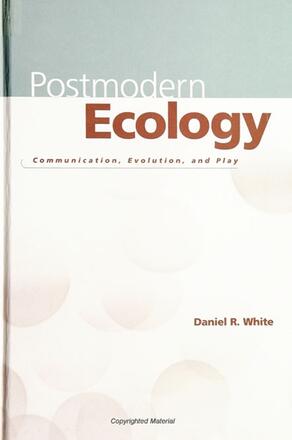
Postmodern Ecology
Communication, Evolution, and Play
Alternative formats available from:
Provides a significant picture of the ecological crisis from the interdisciplinary perspective of postcolonial cultural studies, in order to map the emerging virtual and ecological territories of the twenty-first century "electropolis."
Description
This book spins a historical fable about the trends in European thought that have contributed to the rise of industrial civilization and to the ecological crisis. It explores alternative visions of nature and culture, from Romanticism to ecological theory, in an effort to rewrite the story of natural and cultural history. Its themes include ecological poetics, technological artistry, evolutionary learning, the play of communication, and the struggle for a viable ecological ethic.
Daniel R. White is Associate Professor in Critical Theory and Cultural Studies at The University of Central Florida. He is also the author of Asian Wisdom: India, China, and Japan.
Reviews
"The linking of ecology and postmodernity is expected, and here done well, but the link with the phenomological life-world is a very perceptive touch and one crucial to both ecology and postmodernity. Just at the moment when a reader might have placed White in a non-aesthetic corral, he adds a chapter on literary ecology, a discussion of how the ecological and postmodern interrelationships are brought into play in literary worlds."-- Joseph Natoli, Michigan State University
"White has given himself a heroic challenge by bringing together several current fields of scholarship, literature, and philosophical speculation into the all-encompassing whole of the book title: Postmodern Ecology. He has admirable command of the materials and moves knowledgeably among biological ecology, communication theory, structural anthropology, philosophy, literature, and contemporary popular culture."-- Fred E. H. Schroeder, University of Minnesota, Duluth
"Intellectually, to argue against, and more importantly, to simply think our way out of the dead end of modernist ideologies, we need radically alternative perspectives. White, and others, argue that such perspectives are already around, but need to be mobilized. This book is a contribution to the discussion of which perspectives these should be and how they can be mobilized in some larger view of human and transhuman interests."-- Jay L. Lemke, City University of New York